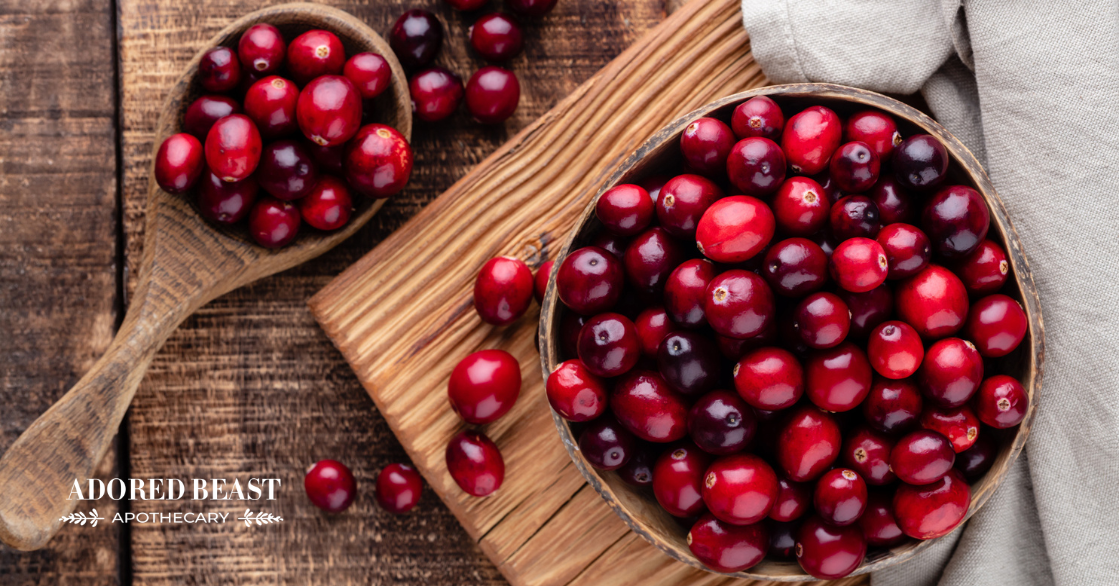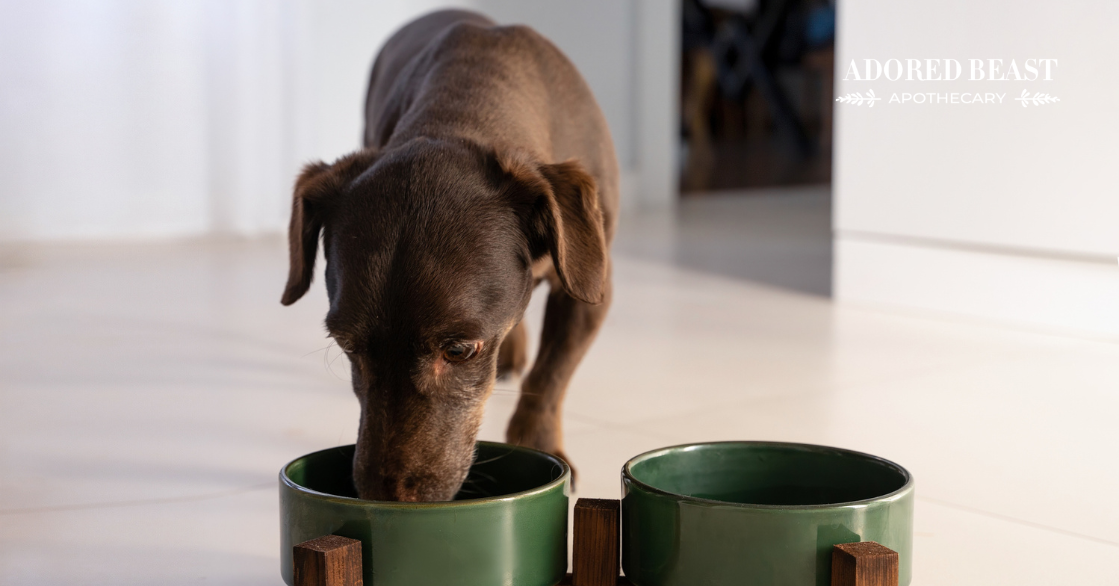When fall and winter roll around, cranberries seem to pop up everywhere – from holiday dinners to baked goods to refreshing juices. But if you’ve ever caught your dog eyeing those little red berries, you might wonder: can dogs eat cranberries?
The short answer is yes, in moderation. Cranberries can actually provide some wonderful health benefits for your pup, but there are also a few cautions to keep in mind.
The Nutritional Profile of Cranberries
Cranberries may be small, but they’re packed with nutrients:
- Vitamin C – Supports immune function and helps protect cells from damage.
- Vitamin E – An antioxidant that helps keep skin and coat healthy.
- Vitamin K – Plays a role in proper blood clotting and bone health.
- Fiber – Aids in healthy digestion and gut balance.
- Manganese & Copper – Important for metabolism and bone development.
- Powerful Antioxidants – Cranberries are especially rich in polyphenols, which fight oxidative stress and inflammation.
Ok, they’re packed with goodness, but can dogs eat cranberries?
Can Dogs Eat Cranberries?
As we mentioned, yes! Cranberries can be beneficial for dogs for a variety of reasons:
- Urinary Tract Support: Cranberries are most famous for their ability to support urinary tract health. They contain compounds that can help prevent certain bacteria from sticking to the bladder wall, reducing the likelihood of UTIs. That’s why we include it in our Easy Peasy II!
- Immune System Boost: Thanks to their high vitamin C and antioxidant content, cranberries can help strengthen your dog’s immune system and protect against cell damage.
- Dental Health: Some research suggests cranberries may help prevent bacteria from clinging to teeth, which could support better oral health.
- Anti-Inflammatory Properties: The phytonutrients in cranberries may help reduce inflammation, which can be especially beneficial for older dogs with joint stiffness or arthritis.
How to Feed Cranberries to Dogs
Cranberries can be given fresh, frozen, or dried – but with a few rules:
- Fresh or Frozen: Wash thoroughly and offer plain. You can chop them up and mix them into your dog’s food.
- Dried: Only if unsweetened. Most dried cranberries are packed with sugar, which is not safe for dogs.
- Cranberry Sauce or Juice: Avoid these. They often contain added sugar, sweeteners (like xylitol, which is toxic to dogs), and preservatives. So, no sharing that can of cranberry sauce, please!
- Moderation: Start with just a few berries at a time to make sure your dog’s tummy handles them well.
- Organic: Try to opt for organic cranberries, if possible, to avoid harmful contaminants like glyphosate.
As with anything, there are a few things to keep in mind, including:
- Too much can upset the stomach. Because cranberries are acidic, too many can cause digestive upset or diarrhea. Start slow, then work up to 1-2 per 10 pounds of your dog’s body weight per day.
- Not for dogs with certain conditions: Dogs prone to kidney stones should avoid cranberries, as they can increase the risk of calcium oxalate stones.
- Size matters: Cranberries are small, but for toy breeds, they could be a choking hazard if given whole. Chop them up first.
- Some dogs may not like them. Cranberries are great, but if your dog just doesn’t like them, don’t force it.
No-Bake Cranberry and Coconut Dog Treats
Here’s a simple, natural, yummy treat you can make at home:
Ingredients:
- 1/2 cup fresh or frozen cranberries (chopped)
- 1/2 cup unsweetened shredded coconut
- 1/4 cup unsweetened applesauce
- 2 tbsp chia seeds (or ground flaxseed)
- 1–2 tbsp natural peanut butter (no xylitol or added sugar)
Directions:
- In a food processor, pulse the cranberries until finely chopped.
- Add shredded coconut, applesauce, chia seeds, and peanut butter. Blend until well combined.
- Roll the mixture into small bite-sized balls. If the mixture is too sticky, add a little more coconut to firm it up.
- Place the treats on a tray lined with parchment paper.
- Refrigerate for at least 1 hour to set.
Storage: Keep in the fridge for up to 5 days, or freeze for up to a month.
These are soft, nutrient-dense treats that give your dog the benefits of cranberries without grains, flour, or baking.
So, what’s the bottom line? Can dogs eat cranberries? Yes, these tart little berries are full of antioxidants, vitamins, and other health-boosting compounds. Just make sure to feed them plain, in moderation, and avoid sweetened or processed versions. A handful of cranberries here and there – or made into a healthy treat – can be a tasty and beneficial addition to your dog’s diet.












